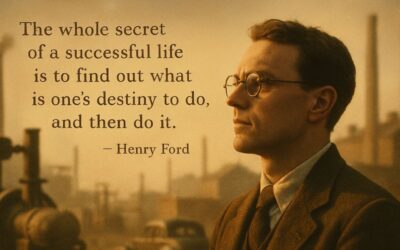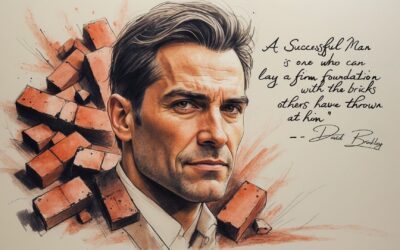Imagine someone who always plays it safe. Each day looks like the one before – get up, go to work, take the usual route home, eat dinner in front of the same TV shows. There’s comfort in this routine, predictability. But think about everything this person might be missing! The thrill of taking a different path for once and seeing what lies around the bend. The satisfaction of trying a new recipe that might become a family favorite. The growth that comes from a job project well outside the usual scope.
That’s where Albert Einstein’s famous quote comes in: “A person who never made a mistake never tried anything new.” He wasn’t saying mistakes are fun, nobody likes those! But by taking that chance, we step out of the familiar and into the realm of possibility.
Why it Matters
This quote is a powerful reminder, especially in our mistake-averse world. Fear holds us back – fear of looking foolish, fear of failure, even fear of the unknown. Yet, mistakes are teachers. They’re not the end of the road, they’re detours showing us a different way.
When to Use This Wisdom
This quote has its place (and a darn important one at that!). It’s perfect for:
- Encouraging a child struggling to master a new skill. Instead of dwelling on errors, it shifts focus to the effort and the potential for improvement.
- Inspiring a team hesitant to try a groundbreaking approach. It emphasizes that innovation means embracing the risk of not getting it right at first.
- Our own inner voice when we get stuck in that loop of self-doubt. It reminds us that growth happens outside our comfort zone.
When to Think Twice
There are times this quote misfires. Here’s when it falls flat or can even be hurtful:
- After serious consequences: A surgeon messes up, a pilot makes a fatal error…no amount of “at least you tried” changes the severity. This quote is NOT about excusing negligence.
- As a response to pain: Telling someone hurting, “Mistakes make you stronger” invalidates their emotions and dismisses the need for support.
- To downplay systemic issues: It’s offensive to imply that individuals solely control their outcomes. This ignores unfair systems that limit people’s potential for advancement regardless of how hard they try.
Where it Came From
Einstein, the genius who revolutionized physics, wasn’t talking just about science. Yes, breakthroughs came from questioning assumptions and daring to think differently. But he also valued a wider human perspective. This quote likely wasn’t uttered in a public speech. It probably emerged in conversations or letters – a way for Einstein to encourage risk-taking, exploration, and the tenacity to learn from setbacks.










0 Comments